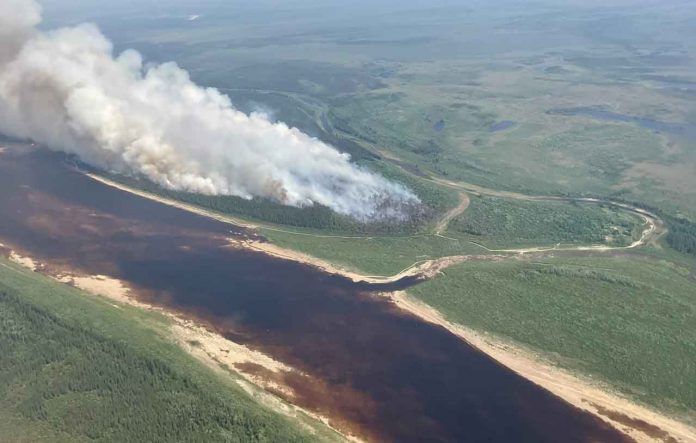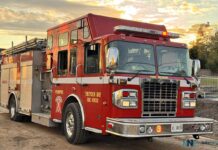
High Levels of Air Pollution from Forest Fires
Thunder Bay – Climate – Smoke plumes from forest fires in northwestern Ontario have descended upon the area, resulting in significantly deteriorated air quality. for the City of Thunder Bay. The impact of the smoke is expected to persist throughout the weekend in certain areas, creating concerns for residents’ health and well-being.
Fluctuating Air Quality and Visibility
Air quality and visibility may vary drastically over short distances and can change substantially from hour to hour due to the wildfire smoke. It is crucial to remain vigilant and take necessary precautions to minimize exposure.
Detailed Information
For further details regarding the current air quality conditions and recommendations, we encourage you to visit the official website at www.canada.ca/en/environment-climate-change/services/air-quality-health-index/wildfire-smoke.html.
Health Risks and Protective Measures
Wildfire smoke can pose health risks even at low concentrations. It is essential for everyone, especially individuals with lung disease (such as asthma) or heart disease, older adults, children, pregnant individuals, and outdoor workers, to take proactive measures to reduce their exposure to the smoke.
Health Management and Medication
Consult your healthcare provider to develop a management plan specific to wildfire smoke events. Ensure you have an adequate supply of necessary medications at home and carry them with you at all times during wildfire season.
Monitor Symptoms and Seek Assistance
If breathing becomes uncomfortable or you or someone in your care experiences discomfort or illness, reduce or cease physical activity. Contact your healthcare provider or local health authority if severe symptoms develop or if you need medical advice.
Air Quality Health Index (AQHI) and Hydration
Regularly check the Air Quality Health Index (AQHI) and monitor your symptoms. Each individual may respond differently to smoke exposure, with mild irritation and discomfort being common. Staying hydrated by drinking plenty of water can assist your body in coping with the effects of smoke.
Indoor Air Quality Measures
For those with HVAC systems in their homes, use the highest rated MERV filter suitable for your system, ideally rated 13 or higher, and set the fan to recirculate air continuously. Consider utilizing a portable High Efficiency Particulate Air (HEPA) air cleaner as an additional measure. Keep doors and windows closed when the temperature indoors is comfortable.
Seeking Clean Air Indoors
Find a location in your community where clean, cool air is available, and take breaks from the smoke in these areas.
Respiratory Protection Outdoors
If you must spend time outdoors, a properly fitted respirator-type mask, such as a NIOSH certified N95 or an equivalent respirator, can help reduce exposure to fine particles present in smoke. However, please note that respirators do not offer protection against gases in wildfire smoke. Be attentive to your body’s signals and decrease or cease activities if symptoms arise.
Checking on Vulnerable Individuals
Remember to check on the well-being of individuals in your care and those around you who may be more susceptible to the effects of smoke.
Reducing Indoor Air Pollution
To minimize indoor air pollution, avoid smoking or vaping indoors, burning incense and candles, frying foods, using wood stoves, and vacuuming if possible. During periods of pollution, wipe and wet mop indoor surfaces to remove dust accumulation.
Mental Health Support
If you experience feelings of stress, anxiety, or depression, reach out to your mental health care provider for advice. Alternatively, visit https://www.wellnesstogether.ca/en-CA for additional resources and support.






